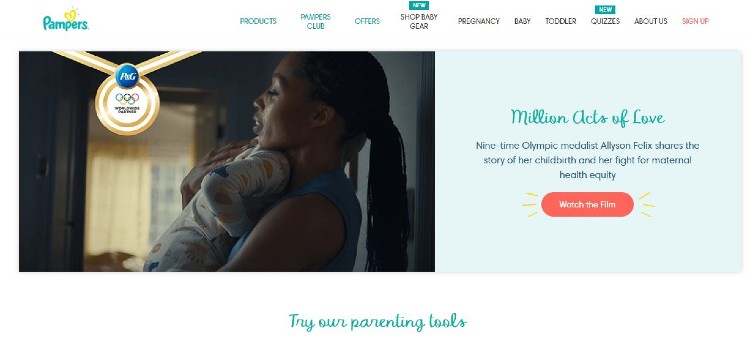Lead generation is the process of attracting potential customers who are interested in your business, product, or service. The person who takes an interest is called a ‘Lead’. The sources for lead generation are online content, social media campaigns, phone inquiry, website, coupons, and live events. Leads drive business and many factors are held accountable to drive more of them. The most effective one worth implementing for lead generation is integrating Search Engine Optimization (SEO) with Conversion Rate Optimization (CRO), but many digital marketers find it difficult to integrate these two concepts.
You probably know the importance of SEO for generating traffic for your website and enhancing brand awareness, but that solely does not generate the desired revenue. People who click or land up on your website might not feel motivated to purchase or subscribe unless they feel motivated to click on the action.

If you are using SEO services, you are constantly monitoring the SEO metrics through your dashboard, but did you know the same dashboard can help you track your conversion rates as well. Also, it helps in monitoring your website performance. This way you will find out the unattended and struggling areas of your website and improve your performance.
Furthermore, you can set your goals on the dashboard and come up with strategies to achieve them. The alignment of SEO and CRO might sound difficult, but there are various strategies you can use to make it easier and drive more leads for your business. To know these strategies, understand the importance of combining SEO with CRO.
Importance of combining SEO with CRO
SEO drives more traffic on your website and raises brand awareness while CRO increases the percentage of visitors on the website who might take actions like subscribing to the mailing list, clicking on the website’s link, and providing personal information. In short, CRO is the practice of increasing users who perform desired actions on your site. SEO and CRO combined brings incredible lead growth to your business.
If you look at your inbound marketing efforts, CRO and SEO help you find the gaps in the marketing funnel and fix them strategically. These two functions work together to generate qualified leads for your business. Many marketers fail to form a proper balance between SEO and CRO. SEO attracts people to your site and CRO converts them into your customer. They both are highly dependent on each other.
SEO has become complex over the years as all businesses have started to understand the importance of organic traffic, being featured in organic search results, and increasing brand awareness. An effective SEO strategy fuels an inbound marketing engine to attract more prospective buyers to your website regularly. The first one is the creation of rich, relevant, and comprehensive content which is essential for the SEO optimization of your website. Apart from this, the following strategies will help you attract more leads.

Strategies to combine SEO with CRO
The first step is to build a robust SEO strategy that fuels the inbound marketing engine leading to increased customers on-site regularly. The steps you can include are:
Prepare quality content
Your SEO depends on your content. The good content can be crawled and indexed well on SERP. When a buyer uses the search engine with some keywords related to his/her search, he/she is actually searching for the best content for the question. As a marketer, we want to make contents that should match the buyer’s specific query. We do this through extensive research, on-page search and thorough optimization to make sure that every piece of the content updated on the website must come into the ranking.
This is the foolproof idea to drive organic traffic towards your page, but there is something that is beyond just numbers and rank or keywords.
CRO not only applies to your landing pages or solution pages but also the elements of CRO can be applied to your contents.
You just have to assign a target or goal to each and every piece of content you post, while developing the ideas or doing keyword research. The target could be what action do you want to have or what should your reader will draw conclusions after reading the content.
Set this goal into your content calendar and systemize a call to action on each page you post.
Look out to the reader position in the funnel after landing on your website. Probably the reader who lands on “ A Beginner’s Guide to Artificial Intelligence for marketing” would not be ready for a live demo. Hence guide the reader on to the lesser intimidation actions such as subscribing to your newsletter. Ensure the CTA should not look like some spammy action or too promotional to the reader. Make them believe that the CTA will add additional value to the reader.
Engaging one’s self in this will force you to think beyond traffic.
Case study of Pampers –

Pampers, the diaper brand used its conversion data to amplify its content strategy. They gathered tons of data to get the possible result for their conversion.
They created content for expecting and new moms as they are the target audience here. They also provided tips, printable guides, tools and personalized product recommendations. They used to show a pregnancy calculator, a week by week calendar and a name generator with splendid articles for mother and baby.
Their tools will be shown on their site right above the fold. It is shown as hovering over a product feature. Scroll down further on the page, you will get to see content that covers every tiny moment a mother probably Google for an answer. Their articles and tools are adjusted in a few calls to action for more content or guides to their products.
Looking at the case study we observed that, they have supported their conversion data in two ways
- They have helped their audience in providing the solution to their needs through the variety of contents
- They also have created a great user experience to help their potential customers in finding what they are looking for and what they may look out for in the coming days.
The power of legitimate and strong content can leave you at the higher search rankings, you can grow your audience. Once the audience starts flowing in, then build trust for your product within them and propel them towards taking action. You can use the knowledge you have gained about user behavior from your CRO to harness the content to make it even stronger. Ultimately it will help you in more conversions.
Enhance user-experience

The term UX is very much familiar now in our technical world. User experience (UX) is the main factor of SEO and CRO.
Your website must be error-free from the customer end. If it is slow, some glitches are there then it will negatively impact your traffic and conversion. To make it stream line and error-free, you need to optimise your website to ensure a smooth browsing experience for the visitors.
That is the main reason, you should think about split testing. You can call it A/B testing where A is the primary test you thought of and B comes when the outcome from A is not so desirable.
In this test, we take multiple variations of a web page to see which one has the fastest conversions. This standard practice involves the CRO marketers testing different types of lead forms, layouts, copy variants and call to action buttons.
Some of the SEO marketers believe that split tests could negatively affect the organic rankings. The reason for which they don’t go for split tests. But the truth is that Google encourages testing and supports statistical significance in your split tests where the sample size is not very large. However, you need the traffic to have more accurate test results.
Although there is nowhere mentioned that you should take thousands of web visitors as “enough traffic.” As per marketer perception, they take thousands of web visitors at least to run the tests. You can use any size calculator tool for a better idea of getting more unique numbers for your website.
This is the way, where you can combine SEO and CRO. If you have built your SEO foundation string then you can combine CRO to yield a maximum outcome. CRO and SEO have similar types of environments where they both can work supporting each other for a common goal of generating income.
Make optimum use of SEO Analytics

As mentioned earlier, an SEO dashboard helps you improve your SEO. You can utilize the data and gather a lot of information such as
- Pageviews
- Visitors demographic details
- Prominent landing pages
- Number of exits per page
- Most visited pages
- Time spent on each page
- The average number of pages visited
This data might differ during different periods. You can compare this information, understand your strengths and weaknesses, and leverage CRO in the best possible way. You can also introduce seasonal or cultural promotions depending on demographic details. There are many other SEO strategies to explore and boost your conversion rates.
Integrate social media in your SEO strategy
Social media can contribute well to your SEO strategy. Platforms like Twitter, Facebook, Instagram, and Youtube have become a significant part of people’s lives. Social media can help you connect with your audience and raise your sales figure. To reach a wider audience, use the right keywords, hashtags, and other elements that drive people to your channel and make them hop to your website.
Identify marketing funnel gap
SEO and CRO help you identify and fix gaps in your funnel. Let’s say if your product page is ranking 1 for its primary keyword and generating a lot of traffic, but a majority of the visitors are leaving without purchasing anything. Only a small percentage of users on the page actually convert which is the sign of a red flag. Just because Google ranks it doesn’t mean the audience will like it. In such cases, you should make improvements like revisiting your content, re-optimizing your page, and fixing bugs that might be on your website.
You can also learn from CRO exercises to improve SEO on your web pages. The CRO insights help you understand consumer behavior. These include the age and demographics of consumers, popular products and services, and purchase frequency. These insights will help you improve your content marketing strategy which in turn will raise conversions. Consumer behavior also helps you to improve the SEO of your website.
These are some of the strategies of strategically aligning SEO with CRO to generate more leads and establish your digital presence. A perfect blend of SEO and CRO will help your website drive leads and sales for your business. Following these strategies can drastically raise your revenue and profits and result in good returns of Investment(ROI).
Enhance conversion through a prominent brand identity

Since The last few years, particularly user behavior has been shifting towards a multi-source and multi-stage process when the consumer purchasing decision. No matter how good your landing pages are in attracting the consumers, how well the content is written d=for customer-specific needs, your brand needs to have a strong social media presence with accurate SEO effort.
You can guide your CRO specialists with the below instructions on how it needs to be done.
Google loves the real brands doing real businesses and they must have their real offices and real people. Google will check all this only from the social media presence. Not only the office and business Google will search for in order to verify your business, but also it will check the presence of the worker and people’s social media presence linking with your business. Google took it one step forward by looking into a website whether it is associated with a tax-paying business or not. This factor will impact your SERP rankings.
Having a well-established social media profile of the business or the people associated with it can help in brand positioning and will also increase rankings with brand identity. Google is taking social media accounts preferably in SERPs, as these social media accounts are the influencer of consumer behavior. A link to your company or business for location and work profile from many social media accounts is taken into the preference rather than the same link shared multiple times from a single account.
Site Level SEO factors that improve CRO
Conversion optimization has been extended to multiple pages now, previously it was done for a single page. Creating “conversion paths” throughout the website is the new way of CRO. Traditional SEO says that breaking up content into multiple steps is not a good idea. But CRO specialists are advising multiple-step landing pages for more conversion. You can engage respondents in a more productive dialogue and facilitate proper segmentation. While there is still a big debate going on for conversion path orientation and best site, there is a visible correlation between great SEO practices and a stellar CRO.
There are some site-level SEO factors that improve CRO. That are:
- Sitemap and site architecture both improve the website’s relationship with Google. They allow the search engine to easily index the web pages and easily navigate your web content. To make the website’s architecture SEO and CRO enhanced, ensure your website is capable enough to accommodate conversion paths without disturbing its natural flow.
- Domain trust rank is a link analysis technique for your website’s ranking factor. It analyzes the authority of your site and presents your site in the primary SERP result if found “trustworthy”. However, if your site has quality content and presents itself as a leading company with good authority then your site will be displayed by TrustRank.
- Google also indexes the SSL certificates and takes HTTPS as a ranking factor. Many sites have transactional pages where the customer credit card details or personal data are stored and could be hacked. Thus an SSL certificate provides security from hacking and Google considers that as an authentic measure for rankings. This certificate lets Google know that you are running a legitimate business as well.
- Mobile-friendly sites undoubtedly have been proven as the best rank holders on Google. It was not there till April 2015 but after the “Mobile-Friendly” Google algorithm update, you can not imagine getting a good SERP rank without making your website mobile-friendly. Google also has started displaying “Mobile Friendly” tags in the mobile search results. Google has some precise standards and instructions for evaluating the layout of mobile-friendly design. If you are eager to know all of that then you are referred to Google Search Central to know the requirements. Or you can run a Mobile-Friendly Test from your google console or many tools out there to know your website’s current performance.
- You must be aware of disavowing links. If the low-quality backlinks are pointing to your landing pages or the webmaster tool starts warning you for your unnatural links, then you need to use the Disavow Tool. It is essential to know how to find, fix and resolve google penalties. The webmaster tool cannot remove the harmful backlinks by itself but it can eliminate them when Google assesses your site.
Conclusion
You need to know that the success of your digital strategy depends on the rightful integration of SEO and CRO. Developing an integrated approach by keeping a balance between SEO and CRO tactics will drive traffic towards your page and you will have quality website leads. To make your website stand out in the ocean of websites that convert its page visitors, you are advised to apply the tips explained above.
About the Author
Lyuthar Jacob is a content manager at a digital marketing agency, where he gets to do what he loves doing- writing and managing content with smart digital marketers in the company


